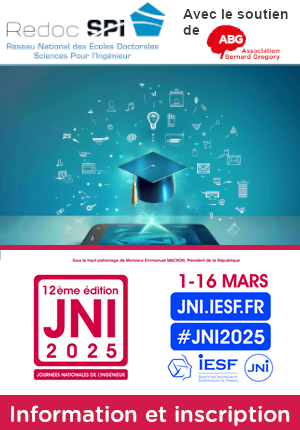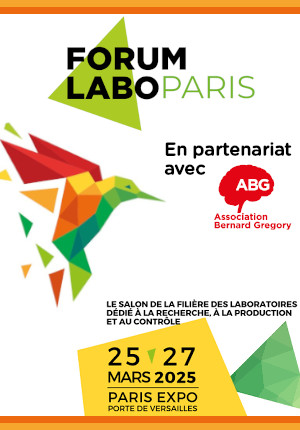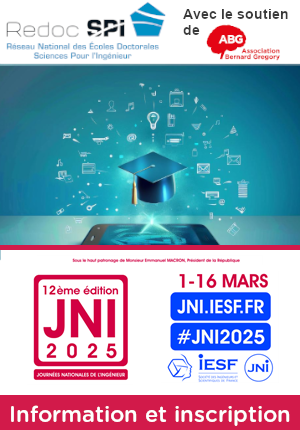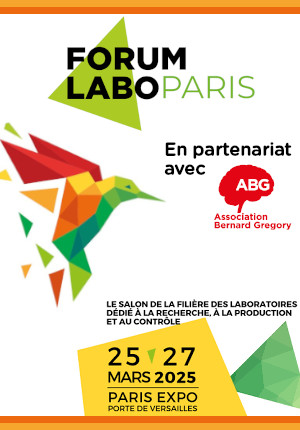Théorie Abstraite de l'Explicabilité // Abstract Theory of Explainability
|
ABG-127817
ADUM-60381 |
Sujet de Thèse | |
| 08/01/2025 | Contrat doctoral |
Université de Toulouse
Toulouse cedex 4 - France
Théorie Abstraite de l'Explicabilité // Abstract Theory of Explainability
- Informatique
IA Explicable, Raisonnement Formelle
Explainable AI, Formal Reasoning
Explainable AI, Formal Reasoning
Description du sujet
L'amélioration de la confiance dans les décisions prises par les modèles automatisés devient cruciale pour leur acceptation par les utilisateurs finaux, et un moyen important d'y parvenir est de fournir des explications sur leur comportement. Ce besoin a donné naissance à un nouveau sous-domaine de l'intelligence artificielle, le XAI, dont les approches fournissent des moyens d'expliquer ce que font les modèles d'IA et pourquoi ils le font. Une pléthore de modèles a été étudiée dans la littérature, allant des modèles d'apprentissage automatique [1], aux systèmes de raisonnement non monotones et la sémantique de l'argumentation [2]. Dans ces cas disparates, les modèles sont différents car ils manipulent des objets différents (par exemple, les graphes dans l'argumentation et les valeurs d'attribut dans la classification) et s'attaquent à des tâches différentes (classification, inférence, évaluation,...). Par conséquent, les explications des modèles prennent également différentes formes (arguments, graphes, formules, valeurs d'attributs,...). Ces différences rendent difficile la comparaison de leurs explicateurs.
Cette thèse de doctorat vise à définir une théorie abstraite de l'explicabilité qui peut être instanciée pour expliquer n'importe lequel des modèles spécifiques mentionnés ci-dessus. L'idée est de considérer un modèle d'IA comme une fonction arbitraire dont les entrées et les sorties sont prises dans un domaine arbitraire (graphes, formules logiques, attributs-valeurs,...). Ainsi, le modèle et les données qu'il manipule sont abstraits.
La thèse abordera les défis suivants :
1) Définir le cadre formel dans lequel les modèles sont des entités abstraites.
2) Définir la notion d'explicateur et les propriétés formelles qu'il devrait satisfaire comme dans [3,4].
3) Générer différents types d'explications, y compris contrefactuelles, contrastives, abductives d'une manière uniforme.
4) Instancier le cadre avec divers modèles d'IA, y compris la sémantique graduelle dans l'argumentation, des classificateurs à boîte noire.
------------------------------------------------------------------------------------------------------------------------------------------------------------------------
------------------------------------------------------------------------------------------------------------------------------------------------------------------------
Improving trust in decisions made by automated models is becoming crucial for their acceptance by end-users, and an important way ofdoing that is by providing explanations for their behavior. This need has sparked a new subfield of Artificial Intelligence, XAI, whose approaches provide ways to explain what AI models do and why they do it. A large plethora of models has been investigated in the literature, ranging from machine learning models [1], to non-monotonic reasoning systems and argumentation semantics [2]. In these disparate cases, the models are very different as they manipulate different objects (eg., graphs in argumentation and attribute-values in classification) and address different tasks (classification, inference, evaluation, ...). Consequently, explanations of models also take different forms (arguments, graphs, formulas, attribute-values, ...). These differences make the comparison of their explainers difficult.
This PhD thesis aims to define an abstract theory of explainability which may be instantiated for explaining any of the above-mentioned specific models. The idea is to consider an AI model as an arbitrary function whose inputs and outputs are taken from an arbitrary domain (graphs, logical formulas, attributes-values, …). Hence, both the model and the data it manipulates are abstract.
The thesis will address the following challenges:
1) Defining the formal setting where models are abstract entities.
2) Defining the notion of explainer and the formal properties it would satisfy as in [3,4].
3) Generating various types of explanations, including counterfactuals, contrastive, abductive in a uniform way.
4) Instantiating the setting with various AI models including gradual semantics in argumentation, black-box classifiers.
------------------------------------------------------------------------------------------------------------------------------------------------------------------------
------------------------------------------------------------------------------------------------------------------------------------------------------------------------
Début de la thèse : 01/09/2025
Cette thèse de doctorat vise à définir une théorie abstraite de l'explicabilité qui peut être instanciée pour expliquer n'importe lequel des modèles spécifiques mentionnés ci-dessus. L'idée est de considérer un modèle d'IA comme une fonction arbitraire dont les entrées et les sorties sont prises dans un domaine arbitraire (graphes, formules logiques, attributs-valeurs,...). Ainsi, le modèle et les données qu'il manipule sont abstraits.
La thèse abordera les défis suivants :
1) Définir le cadre formel dans lequel les modèles sont des entités abstraites.
2) Définir la notion d'explicateur et les propriétés formelles qu'il devrait satisfaire comme dans [3,4].
3) Générer différents types d'explications, y compris contrefactuelles, contrastives, abductives d'une manière uniforme.
4) Instancier le cadre avec divers modèles d'IA, y compris la sémantique graduelle dans l'argumentation, des classificateurs à boîte noire.
------------------------------------------------------------------------------------------------------------------------------------------------------------------------
------------------------------------------------------------------------------------------------------------------------------------------------------------------------
Improving trust in decisions made by automated models is becoming crucial for their acceptance by end-users, and an important way ofdoing that is by providing explanations for their behavior. This need has sparked a new subfield of Artificial Intelligence, XAI, whose approaches provide ways to explain what AI models do and why they do it. A large plethora of models has been investigated in the literature, ranging from machine learning models [1], to non-monotonic reasoning systems and argumentation semantics [2]. In these disparate cases, the models are very different as they manipulate different objects (eg., graphs in argumentation and attribute-values in classification) and address different tasks (classification, inference, evaluation, ...). Consequently, explanations of models also take different forms (arguments, graphs, formulas, attribute-values, ...). These differences make the comparison of their explainers difficult.
This PhD thesis aims to define an abstract theory of explainability which may be instantiated for explaining any of the above-mentioned specific models. The idea is to consider an AI model as an arbitrary function whose inputs and outputs are taken from an arbitrary domain (graphs, logical formulas, attributes-values, …). Hence, both the model and the data it manipulates are abstract.
The thesis will address the following challenges:
1) Defining the formal setting where models are abstract entities.
2) Defining the notion of explainer and the formal properties it would satisfy as in [3,4].
3) Generating various types of explanations, including counterfactuals, contrastive, abductive in a uniform way.
4) Instantiating the setting with various AI models including gradual semantics in argumentation, black-box classifiers.
------------------------------------------------------------------------------------------------------------------------------------------------------------------------
------------------------------------------------------------------------------------------------------------------------------------------------------------------------
Début de la thèse : 01/09/2025
Nature du financement
Contrat doctoral
Précisions sur le financement
Concours pour un contrat doctoral
Présentation établissement et labo d'accueil
Université de Toulouse
Etablissement délivrant le doctorat
Université de Toulouse
Ecole doctorale
475 EDMITT - Ecole Doctorale Mathématiques, Informatique et Télécommunications de Toulouse
Profil du candidat
Le raisonnement logique et la capacité à comprendre des notions abstraites sont essentiels. Une formation en mathématiques serait unavantage.
Logical reasoning and the ability to understand abstract notions are essential. A mathematical background would be an advantage.
Logical reasoning and the ability to understand abstract notions are essential. A mathematical background would be an advantage.
31/03/2025
Postuler
Fermer
Vous avez déjà un compte ?
Nouvel utilisateur ?
Besoin d'informations sur l'ABG ?
Vous souhaitez recevoir nos infolettres ?
Découvrez nos adhérents
 CASDEN
CASDEN  Tecknowmetrix
Tecknowmetrix  MabDesign
MabDesign  Laboratoire National de Métrologie et d'Essais - LNE
Laboratoire National de Métrologie et d'Essais - LNE  TotalEnergies
TotalEnergies  Groupe AFNOR - Association française de normalisation
Groupe AFNOR - Association française de normalisation  MabDesign
MabDesign  PhDOOC
PhDOOC  Institut Sup'biotech de Paris
Institut Sup'biotech de Paris  ANRT
ANRT  SUEZ
SUEZ  Nokia Bell Labs France
Nokia Bell Labs France  Ifremer
Ifremer  ONERA - The French Aerospace Lab
ONERA - The French Aerospace Lab  ADEME
ADEME  Généthon
Généthon  CESI
CESI  Aérocentre, Pôle d'excellence régional
Aérocentre, Pôle d'excellence régional  ASNR - Autorité de sûreté nucléaire et de radioprotection - Siège
ASNR - Autorité de sûreté nucléaire et de radioprotection - Siège
-
EmploiCDIRef. ABG129192Association Bernard Gregory (ABG)Paris (3ème) - Ile-de-France - France
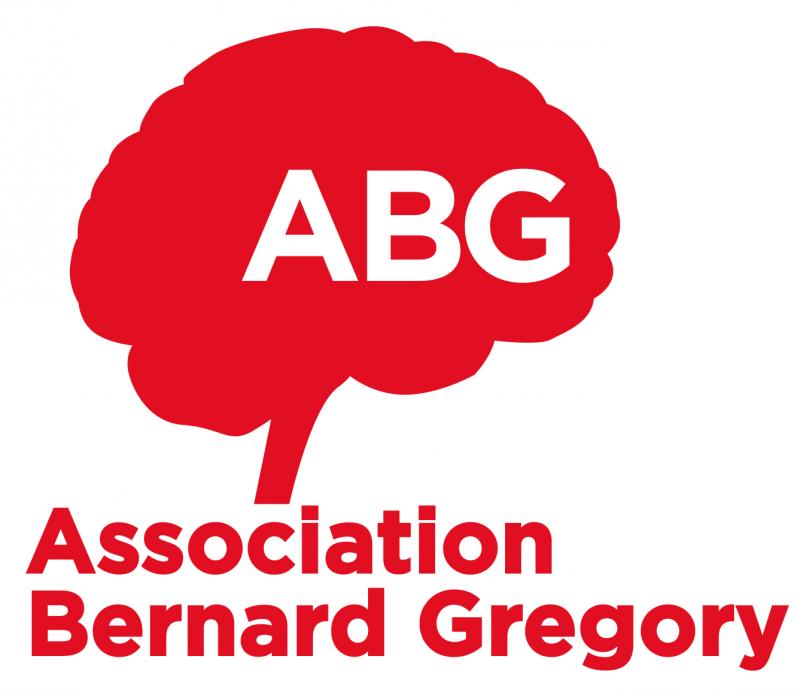
Business Developer (F/H)
IndifférentNiveau d'expérience indifférent -
EmploiCDIRef. ABG128844Institut National de Recherche et SécuritéVandoeuvre-les-Nancy - Grand Est - France

Chercheur en psychologie appliquée au travail et aux risques psychosociaux (H/F)
Psychologie, neurosciencesConfirmé -
EmploiCDIRef. ABG129119AguaroNantes - Pays de la Loire - France

Docteur·e Data Environnement
Ecologie, environnementJunior



